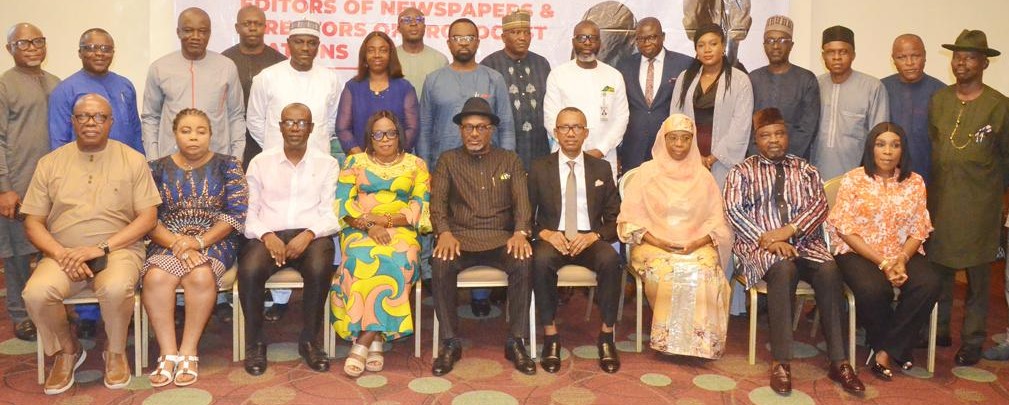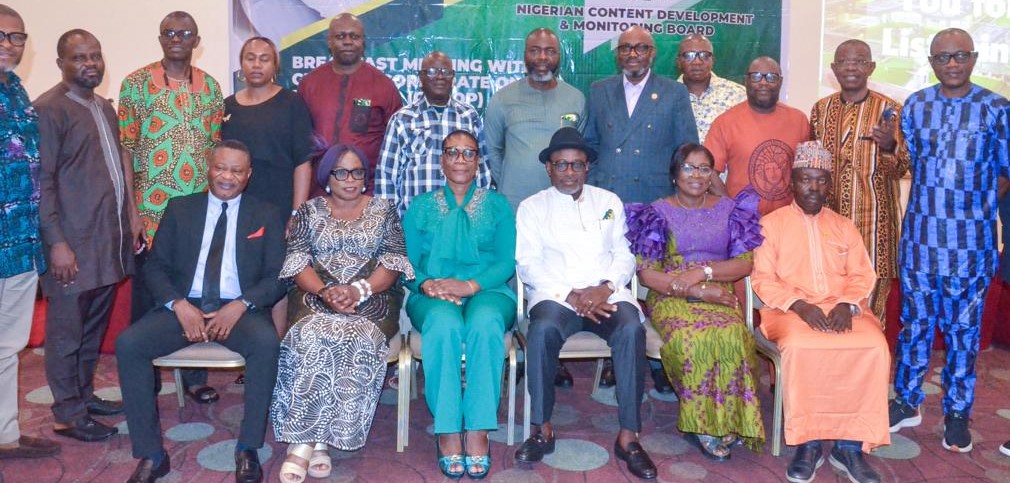
NCDMB says IOC divestments endorse indigenous capacity
- Insists on value flows in domestic economy
Sopuruchi Onwuka
The prevailing divestment of marginal and brownfield petroleum assets by the international oil companies in the country is a prime testimonial on the rapid indigenous capacity development for operations in the industry.

Executive Secretary of the Nigerian Content Development and Monitoring Board (NCDMB), Engr Simbi Wabote, who gave the inspiring perspective to the hyped exit of multinational oil firms from Nigeria’s traditional onshore industry play, declared that attention must however focus on retention of revenue flows to government and cumulative values to the domestic economy.

The Oracle Today reports that the Nigerian upstream petroleum industry has since 2010 witnessed increasing divestment of maturing assets to indigenous investors, giving rise to indigenous operating companies like Seplat, Brittania-U, Energia, First E&P, Aradel, Aiteo, et cetera.
Currently further divestment deals are running to transfer assets from ExxonMobil to Seplat, and from Eni to Oando. Another transaction on divestment of a basket of operating interests from Shell to another indigenous firm is currently deferred.
According to the Nigerian Oil and Gas Industry Content Development (NOGICD) Act 2010, indigenous firms with proven operating capacity should be given preference in award of mineral assets in the petroleum industry.
While discussions and concerns have focused in exit of foreign companies from Nigeria’s traditional onshore play, the financing cuts that would accompany the exit of the big international companies, the scrambles and bickering among indigenous companies over divested assets, and the capacity of the new indigenous crew; there has been little jubilation over the bold indigenous steps in the industry since the divestments started.
At a breakfast meeting with media executives in Abuja, Engr Wabote declared that the ongoing and other planned divestments are big accomplishments for Nigerian Content development.
He described the already recorded successes in the divestments as “bold statements that Nigerian indigenous operating companies have come of age and acquired the technical, managerial, and financial capabilities to play in the big league.”
“We are proud that we have moved from near zero participation in the oil and gas sector to the point that our indigenous operators such as SEPLAT, AITEO, and others are now responsible for 15% of our oil production and 60% of our domestic gas supply. With this planned acquisition, the share of local firms in crude oil production could reach 30 percent or more in a short while.”
He however warned that the ongoing transactions and future divestments from international companies to local producing firms could pose serious challenges to the country in terms of declining Nigerian content compliance and reduction in tax payments to the Government from the new owners and operators.
He based his position on the Board’s experience and records which showed that indigenous firms, especially the indigenous operating companies are serial violators of the Nigerian Content Act and other laws.
According to him, “many indigenous companies feel entitled and assume they can get away with non-compliance. Some indigenous firms have also argued that they should be excluded from the implementation of the NOGICD Act since their primary investors are Nigerians.”
Comparing the attitude of the local firms to their international counterparts, Engr Wabote said that whereas the international oil firms show discipline in complying with the NOGID Act, the indigenous counterparts display penchant for rascality.
The “international operators try to comply with the Nigerian Content because it is in their DNA to obey laws or they have to show evidence of compliance to their home offices. The IOCs will do everything to comply with the provisions of the NOGICD Act. But the indigenous companies will do everything to circumvent the law,” he noted.
He made it clear that Nigerian economy would not develop without encouraging local content in key industries, catalyzing local production of goods and services in the country, and conserving foreign exchange.
On strategies that would compel the indigenous companies to comply, Engr Wabote said the the agency would continue to use existing regulations and guidelines as well as the provisions of the NOGICD Act to reign in non-compliant firms.
He added that the board is also partnering with relevant agencies, including the Economic and Financial Crimes Commission (EFCC) and industry stakeholders to ensure that the increasing footprints and stakes of indigenous production companies do not cause a reduction in Nigerian content compliance and remittance of taxes to the Government.
He reiterated that the ongoing and planned divestments of onshore assets by some international operating oil and gas companies (IOCs) and subsequent acquisition by Nigerian operating companies must not be allowed to impact negatively on the level of compliance with the OGICD Act and remittance of tax revenues to the Federal Government.
He pointed at the planned sale of assets of Nigerian Agip Oil Company Ltd to Oando Plc and Seplat Plc’s planned acquisition of assets of Mobil Producing Unlimited (MPNU) would transform Oando and Seplat from midsized players into big-time oil and gas operating companies.
He corrected the impression that the international oil companies were exiting the country because of unfavorable conditions, hinting that the foreign firms were carrying out assets rationalization, whereby they leave the onshore and shallow waters and focus on deep offshore operations, where they retain a competitive advantage and contend with minimal human interferences.
He charged the media to advocate for Nigerian Content compliance by all stakeholders of the industry and to challenge indigenous oil and gas operating companies to comply with the laws of the land, including the payment of accurate taxes on their operations.



